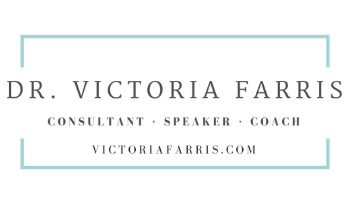Allyship requires humanity
I spent much of my adult life following the rules. I did what I thought I was supposed to do at every turn – I went to college, chased my passion, started a career in higher education, got my masters, started a family, moved up the career ladder, and ultimately got my doctorate. On paper, I had it all, but something never felt quite right.
In 2017 when I completed my doctorate, I felt totally empty. I had been juggling a senior-level job in higher education, parenting two young children, and going to school full time. I was burnt out!
I had compartmentalized my life so well to navigate it all that now that I was finished I had no idea how to put it all back together. I didn’t know how to feel whole or present anymore.
Simultaneously I had done research that changed me. I had finally begun to really understand the profound impacts that racism and structural oppression had on my colleagues, on higher education overall, and beyond.
I knew that the work that I was doing needed to shift. I knew that this was the work that I wanted to be doing in the world – sharing the insights that I had learned, elevating voices and perspectives that weren’t currently being centered, and working to support other white folks who aspired to be allies and accomplices for racial justice. I set the goal of getting into as many spaces and in front of as many people as possible to share what I had learned and to promote more meaningful engagement from white folks.
At the same time, I knew that I was in desperate need of healing – I was ready to feel whole and grounded. I wanted to feel joy again.
Little did I know that these two things were deeply intertwined.
Over the course of the next few years, I invested deeply in my own healing. I attended workshops, read books, downloaded apps, and went to meditation retreats. I discovered crystals for healing, energy work, and meditation as a tool for healing. I worked with a coach. I started to find safety in my body again. I found moments of ease. I found the trust in myself that I had somehow lost along the way. I softened. I found presence and joy and my own power. I also found activism, started my own business and spoke at dozens of conferences about my research and model for effective allyship.
What I didn’t realize at the time was how my healing was impacting my allyship.
Learning about racism and oppression is essential. Hearing about histories and understanding the impacts is necessary for allies. But we can’t intellectualize ourselves out of white supremacy. And what I didn’t realize at the time was that my healing work was expanding my capacity for discomfort. It was moving me past my ego and into myself. It was fostering self-trust and self-acceptance versus the external validation and perfectionism that I’d depended on previously—traits that can cause tremendous harm as an aspiring ally.
When I created my model for effective allyship I identified a roadmap – a list of required ingredients for change agents and aspiring allies. It was all developed based on the perspectives of folks of color and it’s an exceptionally useful tool (if I do say so myself!) but what it’s missing is the how. The part that I didn’t understand at the time that I created this model was just how much of my humanity had been stripped away by white supremacy.
I now recognize that white supremacy harms all of us, and for white folks, one of the most profound forms of harm is dividing us from our humanity. Allyship requires humanity. We cannot intellectualize ourselves out of white supremacy, we must disrupt the system at all levels including through individual and collective healing. Reconnecting to my humanity helped me reconnect to others’ humanity. It’s what elevated my understanding of the impacts of systemic racialized violence, and once I could really appreciate all of that it became impossible not to take bigger, bolder action to disrupt white supremacy.
Currently, my work in the world centers around these two things – educating and facilitating dialogue and workshops on race, racism, white supremacy, and allyship and individual and group coaching to support the embodiment of antiracist practice through healing and deep integration.
You can learn more about my work and how to work with me here:
